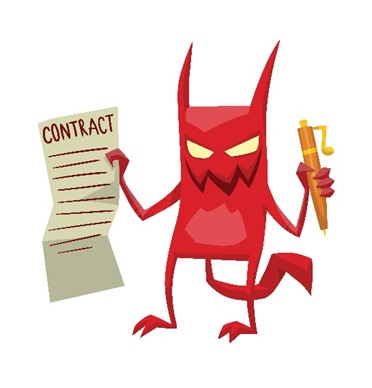Have you suffered from a breach of contract?

To consider whether a contracting party has performed to the required standard as they had originally promised we need to consider whether they have breached the contract. The following questions should be considered when determining whether a party has breached the contract.
- Is there a legally binding enforceable contract?
A contract is a legally binding promise given by one party to another and requires the following elements:
- an agreement between the parties to the contract
- the agreement must be substantively certain and complete,
- consideration (exchange something of value is required in English law and most common law jurisdictions but not necessarily in many other jurisdictions), and
- intention to create legal relations.
It is best practice for parties to have the terms of their agreement in writing. If a signed written agreement does not exist, a court may look at the surrounding circumstances to determine what the parties agreed to.
- What are the terms and conditions of the contract?
If a court is required to resolve a dispute, it must first identify the terms of the contract, the meaning of those terms and their legal effect. A contract does not need to be in writing for a party to enforce its terms, and can be either:
- in writing
- in verbal
- implied (for instance, through a party’s actions or conduct), or
- in a combination of the above
Courts may only look at the surrounding circumstances of the contract if the language used is ambiguous but in other cases a court will first look at what the parties explicitly agreed to, for example, in any emails, contracts or letters.
- What about implied terms?
Implied terms may also bind the parties. As a rule, the court will only imply a term if it is necessary.
The court may imply a term that an industry accepts as standard, but this is not always the case.
- Is there a breach of contract?
Most commonly a party will breach a contract by failing to perform an obligation set out in the contract.
A party must demonstrate that the other party’s performance has fallen short of the expected standard to establish a breach as specified in the contract.
Summary
Before you start incurring significant costs and accusing the other party of a breach whether by way of legal proceedings or otherwise, it is important to get practical advice on the terms of your contract.
Many court cases involve parties fighting over the meaning of a contract, or even whether they entered into a contract at all. It is useful to consider this information at an early stage of the dispute as it can assist in resolving a dispute more quickly.
GLOMACS have the process, expertise and training to equip you with necessary skills to implement a successful contract management strategy.
If you wish to find out more or would like to attend the next session of these courses, please do not hesitate in contacting a member of the GLOMACS team.
Eminent British Lawyer, this GLOMACS Senior Consultant will be delivering a practical guide on “Commercial and Business Contracts” between 11-15 Feb 2017 in Dubai.



